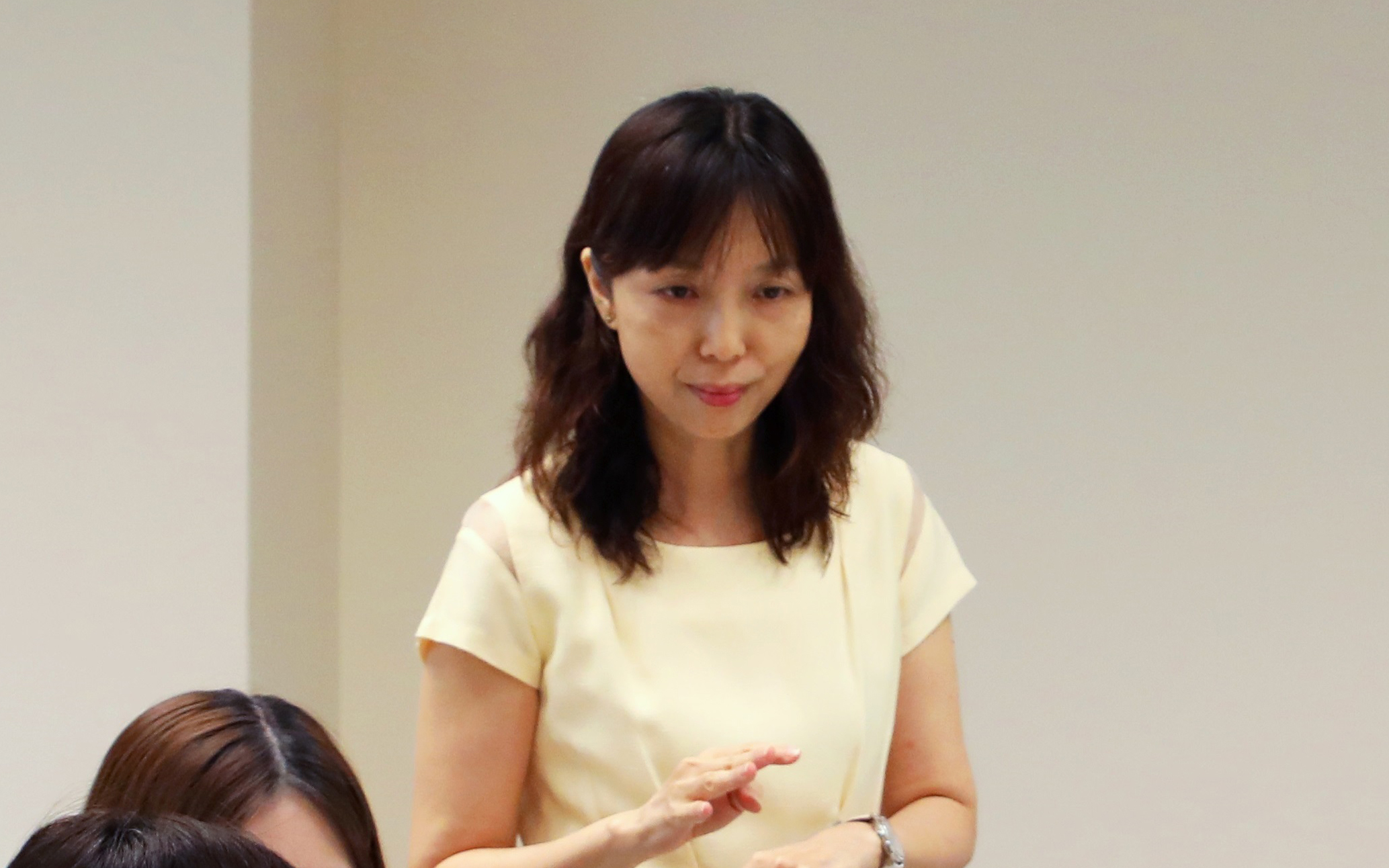Prof. LEE Kit-bing, Icy
B.A. (HKU), Dip. Ed. (CUHK), M.A. in Linguistics (TESOL)(University of Surrey), Ph.D. in Applied English Linguistics (HKU)
Professor, Department of Curriculum and Instruction
Associate Dean (Professional Programmes), Faculty of Education

Introduction
Icy lee has taught in Hong Kong and Vancouver, Canada. She has worked in Douglas College and Simon Fraser University (Vancouver), Institute of Language in Education (currently The Education University of Hong Kong), Hong Kong Polytechnic University, Hong Kong Baptist University, and the University of Hong Kong. The undergraduate and postgraduate courses she has taught include ELT methodology, academic reading and writing, written and spoken discourse, language assessment, classroom communication, teaching and learning of reading and writing, and action research.Her publications have appeared in numerous international journals, including the Journal of Second Language Writing, TESOL Quarterly, Language Teaching, Language Teaching Research, System, ELT Journal, Assessing Writing, and the Canadian Modern Language Review. She is former Co-editor of the Journal of Second Language Writing and currently Principal Associate Editor of The Asia-Pacific Education Researcher.
Research Areas
Second language writing, error correction and feedback in writing, classroom writing assessment, and teacher developmentSelected Publications
- Lee, I., Luo, N., & Mak, P. (2021). Teachers’ attempts at focused written corrective feedback in situ. Journal of Second Language Writing, 54, Article 100809.
- Lee, I., & Yuan, E. (2021). Understanding L2 writing teacher expertise. Journal of Second Language Writing, 52, Article 100755.
- Lee, I. (2021). The development of feedback literacy for writing teachers. TESOL Quarterly, 55(3), 1048-1059.
- Lee, I. (2020). Utility of focused/comprehensive written corrective feedback research for authentic L2 writing classrooms. Journal of Second Language Writing, 49. Article 100734.
- Lee, I. (2019). Teacher written corrective feedback: Less is more. Language Teaching, 52(4), 524-536.
- Lee, I. , Yu, S., & Liu, Y. (2018). Hong Kong secondary students’ motivation in EFL writing: A survey study. TESOL Quarterly, 52(1), 176-187.
- Lee, I. (2017). Classroom assessment and feedback in L2 school contexts. Singapore: Springer.
- Lee, I. (2016). Teacher education on feedback in EFL writing: Issues, challenges, and future directions. TESOL Quarterly, 50(2), 518-527.
- Yu, S., & Lee, I. (2015). Understanding EFL students’ participation in group peer feedback of L2 writing: A case study from an activity theory perspective. Language Teaching Research, 19(5), 572-593.
- Lee, I. (2014). Publish or perish: The myth and reality of academic publishing. Language Teaching, 47(2), 250-261.
- Lee, I. (2013). Becoming a writing teacher: Using “identity” as an analytic lens to understand EFL writing teachers’ development. Journal of Second Language Writing.
- Lee, I. (2011) Feedback revolution: What gets in the way? ELT Journal, 65(1), 1-12.
- Lee, I. (2010). Writing teacher education and teacher learning: Testimonies of four EFL teachers. Journal of Second Language Writing, 19(3), 143-157.
- Lee, I. (2009). Ten mismatches between teachers’ beliefs and written feedback practice. ELT Journal, 63(1), 13-22.
- Lee, I. (2008). Understanding teachers’ written feedback practices in Hong Kong secondary classrooms. Journal of Second Language Writing, 17(2), 69-85.